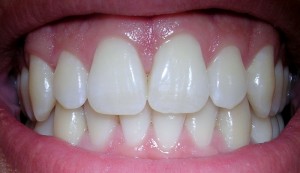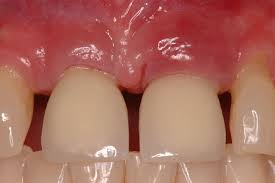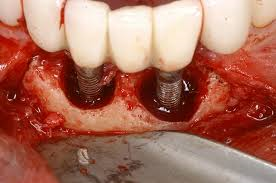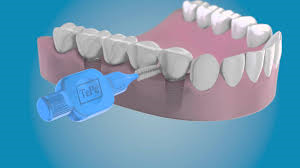Dental implants will last a lifetime if they are given the proper care, much the same as natural teeth. As with natural teeth, oral hygiene is extremely important in avoiding diseases and complications. A regime of regular home and professional maintenance will achieve this.
Healthy Gums

Implants when placed in the bone, become part of it (osseointegration) and in time the gums surrounding the implant, form a collar; the space between the implant and the bone is called sulcus and this should be pink in colour, painless and not swollen.
Peri-implant mucositis

Implants are prone to the build up of bacterial plaque, in much the same way as natural teeth. It is therefore very important to regularly clean this film of bacteria from the gumline around the implants, before it turns into plaque and leads to inflammation and peri-implant mucositis disease.
Peri – implantitis

It is important to have regular checkups as peri – implantitis can often be missed as it is, at the beginning, painless. If allowed to continue the implant looses its bone support. The risk of developing peri – implantitis, are increased by poor hygiene, smoking and periodontitis on existing natural teeth.
Prevention and treatment

